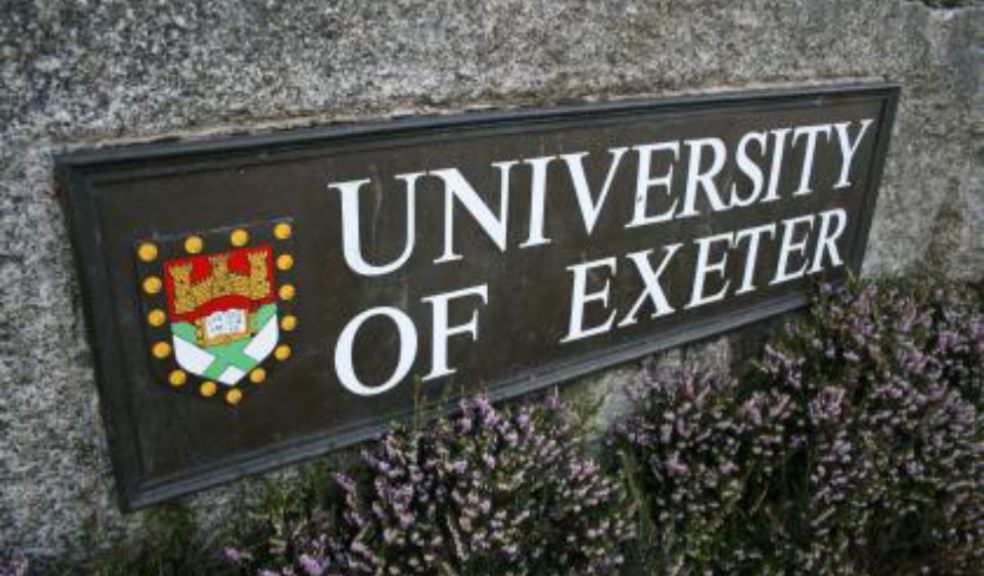
University of Exeter leads national efforts to create sustainable future with launch of circular economy hub
A new research hub led by the University of Exeter will spearhead national efforts to create a 'circular economy' where fewer resources are used and more waste materials reused – delivering huge benefits to the environment and UK economy.
The National Interdisciplinary Circular Economy Hub is supported with £3.5 million from UK Research and Innovation (UKRI).
It will work with the five circular economy centres that were announced last November to explore how reusing waste materials in a wide range of industries, including textiles, construction, chemical and metals, could boost the UK economy as well as deliver massive environmental benefits.
The circular economy hub will provide national leadership to allow the exchange of knowledge across the five centres and with the UK’s wider research and innovation landscape.
Together the hub and five centres form part of a £30 million UKRI programme to move the UK towards a circular economy, in which waste products and materials are reused, repaired or recycled to extend their lifecycle, and the use of raw materials and the waste put into the environment is reduced.
The National Interdisciplinary Circular Economy Hub will be led by Professor Peter Hopkinson and Professor Fiona Charnley of the University of Exeter Business School.
Professor Charnley said: “The circular economy hub and wider programme provides a unique and timely opportunity to coordinate and accelerate interdisciplinary circular economy research at a national scale, positioning the UK as thought-leaders in this growing field.
“As a country, we need to radically change how we use resources and by bringing together and harnessing expertise from academia, business and government we can enable that transformation.”
Professor Hopkinson added: “We need a complete system redesign of how resources are used. The plastics economy, to give an example, has evolved over the last 50 years – we can’t wait that long to build a better system, which will only be possible if all stakeholders are pulling in the same direction.”
The hub will develop and deliver the UK’s first national circular economy observatory, which will improve the provision and quality of data, providing a source of evidence for the UK’s road map towards a circular economy.
It will create a dynamic platform of national research, knowledge and tools to inform new research, policy and industry solutions, facilitating collaboration across a wide range of sectors and strengthening a UK-wide community dedicated to delivering a circular economy.
Professor Dame Lynn Gladden, Engineering and Physical Sciences Research Council (EPSRC) Executive Chair, said: “The National Interdisciplinary Circular Economy Hub will play a crucial role in coordinating research across the UK that will help us to deliver a circular economy.
“By effecting a step change in how we use and reuse resources, the move to a circular economy will deliver major environmental and economic benefits and is an essential element of making net zero a reality.”
The UK Science Minister Amanda Solloway said: “Building a circular economy that reduces waste and reuses products and materials will help us clean up our environment while enabling businesses to grow.
“This new national hub, spearheaded by the University of Exeter, will bring together some of our most talented researchers to work directly with industry, from construction to textiles, on their efforts to reuse waste and help boost the economy as we build back greener.”
Further Information
The hub forms part of the £30 million UKRI Interdisciplinary Circular Economy programme, funded by the UKRI Strategic Priorities Fund, and delivered by the Arts and Humanities Research Council, Biotechnology and Biological Sciences Research Council, Economic and Social Research Council, Engineering and Physical Sciences Research Council, Natural Environment Research Council, Innovate UK and the Department for Environment, Food and Rural Affairs.
In addition to the hub, UKRI is funding five £4.5 million interdisciplinary centres and providing £2.5 million of funding to enable small and medium enterprise involvement with the centres.













